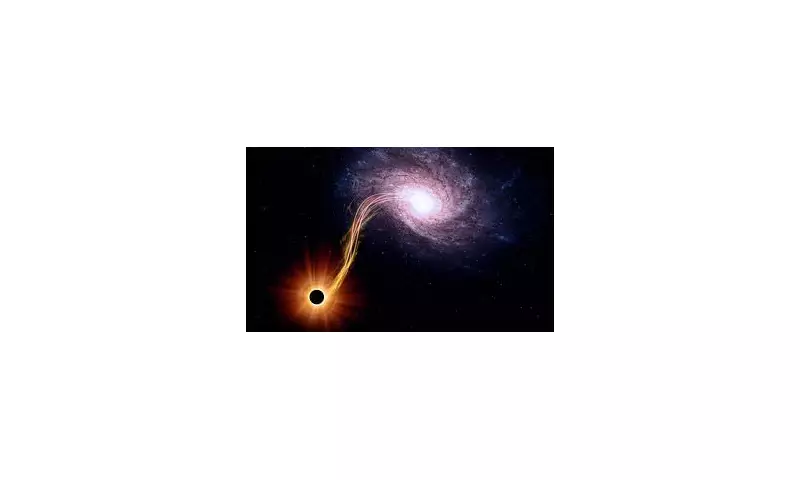
While the idea of falling into a massive black hole is a terrifying but distant cosmic concern, a far stranger and more intimate danger might theoretically exist. Scientists suggest that tiny, ancient black holes could be drifting unseen through our solar system, capable of passing straight through your body at any moment.
The Gruesome Reality of a Cosmic Collision
According to Professor Robert Scherrer, a physicist from Vanderbilt University, an encounter with one of these 'primordial' black holes would be devastating. The gravitational forces of a primordial black hole would be so immense that they would tear the cells of your brain apart from the inside out. Professor Scherrer states: 'A sufficiently large primordial black hole, about the size of an asteroid or larger, would cause serious injury or death if it passed through you. It would behave like a gunshot.'
These theoretical objects are not the giant black holes formed from collapsing stars. Instead, primordial black holes are thought to have formed in the first moments of the Universe, over 13.8 billion years ago, as vast clouds of matter collapsed directly into singularities. Today, any that remain are believed to have a mass similar to an asteroid, but crushed into a point smaller than an atom.
How a Tiny Black Hole Could Kill You
Professor Scherrer's calculations, published in the International Journal of Modern Physics D, outline two deadly mechanisms at play during such a collision.
First, the black hole would create a supersonic shock as it travels through tissue faster than the speed of sound. This blast of energy radiates outwards, and Professor Scherrer compares the impact to being struck by a large-calibre bullet. A black hole with a mass of roughly 140 billion tonnes would deliver a shock equivalent to a .22 calibre rifle, which could be fatal by rupturing internal organs.
The second danger comes from tidal forces. This occurs when gravity pulls more strongly on one part of an object than another, effectively tearing it apart. If a primordial black hole passed through the brain, it could generate a tidal force of 10 to 100 Newtons across the entire organ. This force, the professor explains, 'would be sufficient to pull apart human brain cells.' For the tidal forces alone to be lethal, the black hole would need a much larger mass of about seven trillion tonnes.
No Need to Worry: The Cosmic Reassurance
Despite the gruesome scenario, Professor Scherrer is quick to offer reassurance. He clarifies that a smaller primordial black hole could pass through you unnoticed. More importantly, the density of these objects in space is so incredibly low that such a fatal encounter is essentially never going to happen.
In fact, the fact that no human has ever been recorded as being killed by a black hole provides a crucial scientific clue. Some theories propose that primordial black holes could constitute a portion of the Universe's mysterious dark matter. However, if they were common enough to make up a significant amount of dark matter, fatal encounters would be more likely. Their absence as a cause of death thus helps scientists place limits on how much dark matter they could possibly represent.





